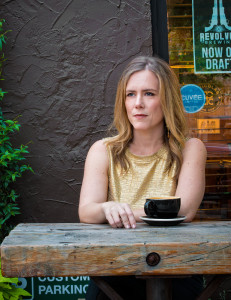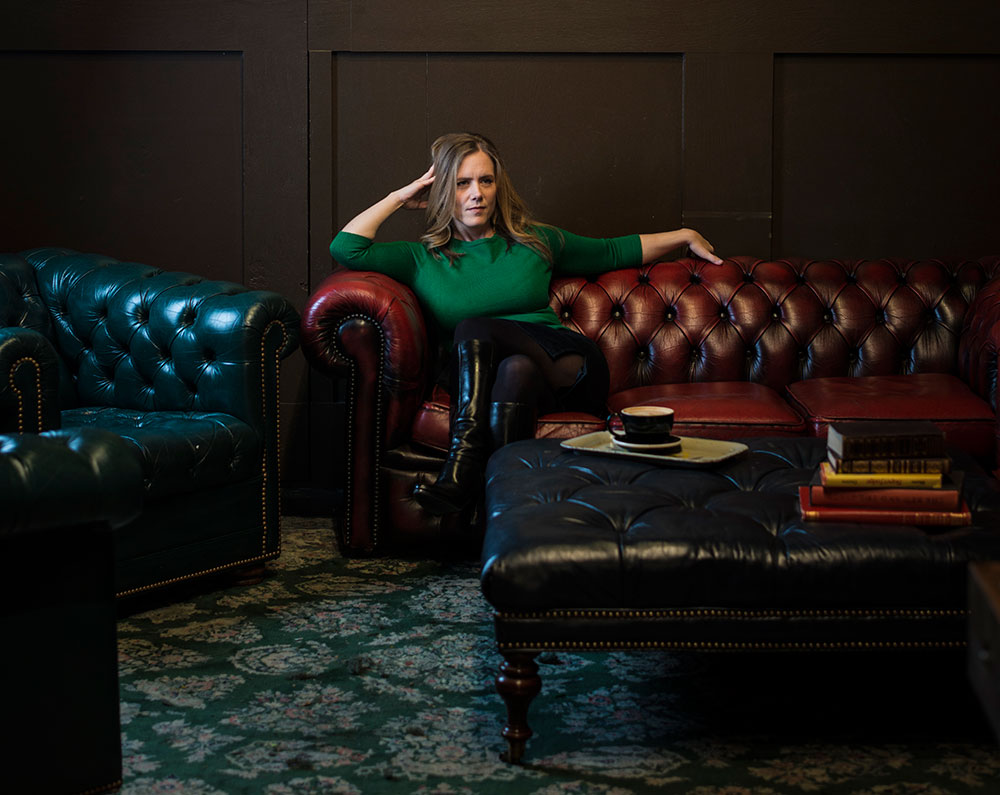Even though Sarah Hepola edits personal essays for Salon, she didn’t start off wanting to write a memoir. The frequent D Magazine contributor wanted to report on the science behind the blackouts that haunted her years of binge drinking, disturbing experiences in which she would suddenly lose her short-term memory but continue to carouse for hours, often indulging unknowingly in behavior that ranged from the ridiculous (mooning friends in college) to the dangerous (waking up in bed with strangers). But as she wrote, Hepola realized the topic was too interwoven with her own life’s story. That set the stage for her new memoir, Blackout: Remembering the Things I Drank to Forget (Grand Central Publishing), which is powerful and troubling precisely because its story isn’t very out of the ordinary and is perhaps all too relatable for some readers.
If you write a memoir, I suppose at some point you have to tell yourself that your life is interesting enough to warrant a book. When did that happen for you?
It is embarrassing to say that you are writing a memoir. You have two levels there. It’s a memoir—ugh—about quitting drinking—ugh. But I thought that I might have a different story to tell than the other books about recovery that I’ve seen. I was self-conscious that my story wasn’t interesting enough. I was a heavy drinker, but I wasn’t a catastrophic, over-the-cliff kind of drinker. In fact, I think a lot of people would read my book and think, “She wasn’t that bad.”
Especially after the film adaptation of Cheryl Strayed’s Wild, you read your book and ask, “Wait, when does she do hard drugs and have sex in an alley and then go hike the Pacific Crest Trail?”
I can remember joking with people in the aughts, when memoirs had almost become this game of brinksmanship, “What could you confess about yourself?” I remember saying to a friend, “Well, we can never write a memoir, because we kept both our arms, and our parents lived.” There was this feeling that in order to tell a memoir you had to have something catastrophic happen to you, and my story was pretty normal.
You drank a lot, but you were still functioning professionally. A functional alcoholic. For some reason that term means a lot to people. But what does that mean exactly?
I kept my job? I think that people have an idea that to be an alcoholic you have to be lying in the gutter. I think there are lots of different kinds of gutters. I was functional in so far that I was writing. But I was broke as hell. I was way in debt. I hadn’t paid my IRS bill in two years. I did tell myself that I was functioning. But if this was functional, I wanted something different.
Is that part of what you were hoping to do—not shock the audience but really connect with them because your experiences were so relatable?
There is a really interesting conversation to have about women and drinking right now, at a time when drinking rates in general are not going up, and men’s are going down, and women’s keep going up. And the question is, Why? What is it that drinking is providing for women? I think that if you look at the enormous pressures on women, I mean we’re supposed to be leaders and caretakers and hot and screw like porn stars—all these things at once while wearing heels. And drinking is this incredible pressure valve release.

But for you it wasn’t just drinking. Blackouts became a big part of your experience of drinking.
I think one of the reasons I wanted to focus on blackouts is that it does affect women so profoundly. For a lot of women out there, what you do before a date, you have a few drinks. What do you do on a date? You keep drinking. And by the time the end of the date comes around, you are so wasted. And so there is this very complicated issue around consent and alcohol, and sexuality and alcohol. Alcohol was really wrapped up with sex for me. I couldn’t imagine being sexual without drinking.
Your book opens with you coming out of a blackout and realizing you were having sex with a stranger. Why start there? I like to begin a story with “Let me tell you something I’ve never told anybody before.” I don’t say those words, but I want it to have that feeling. Because once somebody sits across from me and tells me that, I’m hooked. To me, it is still the most shocking moment of my life.
You also spend a good deal of time on life after drinking. Why is that?
By the time I started the book, I was two years into sobriety, and I started to realize that maybe part of the story had to be life after drinking, which is something I didn’t see in a lot of other recovery memoirs.
What do you miss if you stop at sobriety?
It is like ending a love story when the two characters kiss for the first time. You miss everything. For me, alcohol was celebration, it was commiseration, it was therapy. I used it for everything. So if you take that away, you are forced to confront all of the uncomfortable feelings underneath. In a lot of ways, that’s where the drama starts.
A version of this Q&A appears in the July issue of D Magazine.





